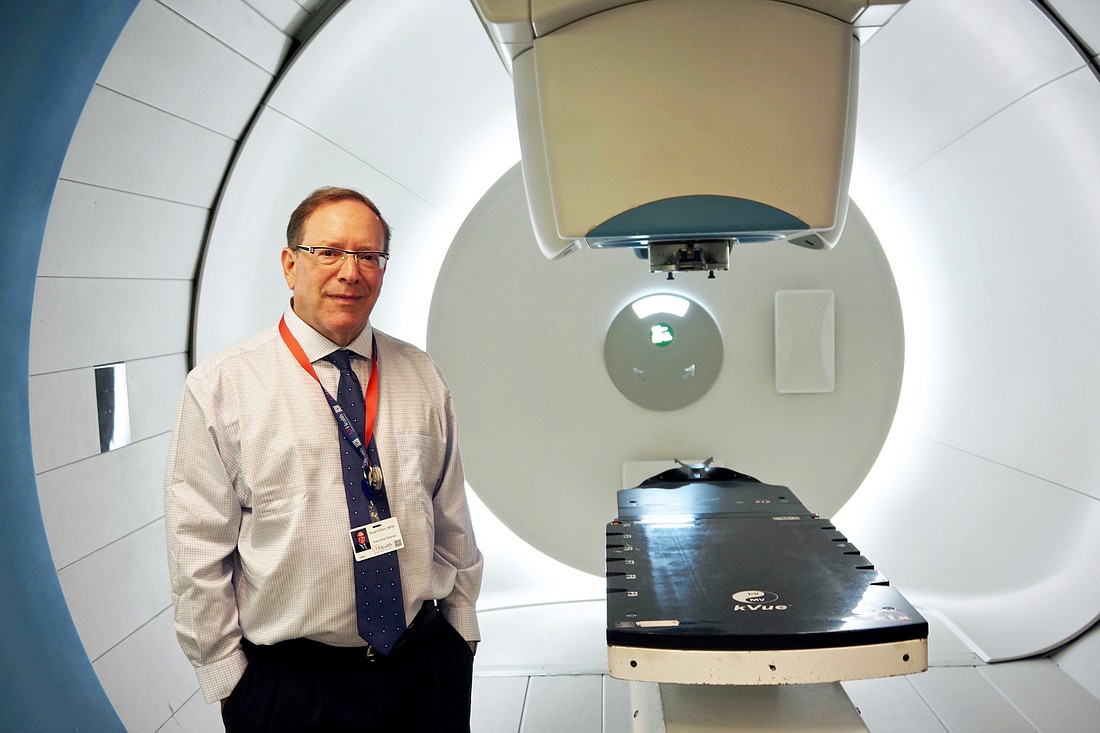
When Mayo Clinic’s $233 million integrated cancer treatment facility is complete, Jacksonville will be home to three proton therapy centers, the most of any city in the country.
That will make Jacksonville “the proton capital of the U.S.,” says Stuart Klein, the executive director of UF Health’s Proton Therapy Institute.
Proton therapy delivers radiation more precisely than traditional methods, minimizing damage to surrounding healthy tissue. It’s ideal for tumors that are difficult to reach, prone to shifting positions, are near sensitive organs or in pediatric cases.
There will be more than enough demand for three facilities, say those already offering the treatment in Jacksonville.
“The city is growing, the population is aging, the incidence of cancer is increasing,” Klein said. “We’re treating a relatively low percentage of patients right now with proton therapy and I think we could be treating a lot more.”
The addition of a third facility can be beneficial for cancer patients in Jacksonville, as well as those in South Georgia, Central Florida and the Panhandle, said Scot Ackerman, medical director of the Ackerman Cancer Center in Mandarin, one of the city’s proton therapy providers.
“It enhances access to this lifesaving treatment for patients here in our city, and regionally as well,” Ackerman said. “This is just giving patients more access to quality care.”
Klein said proton therapy as a treatment option is relatively uncommon – only 1% to 2% percent of radiation treatment is done with the technology.
When UF completed its $91 million proton therapy lab in Springfield in 2006, it was only the fifth one in the country. There are 32 in the country today.
But with highly respected institutions – like Mayo, MD Anderson and Memorial Sloan Kettering – adding it to their cancer treatment technologies, the percentage of cases treated with proton therapy will increase.
“It’s a testament to the technology, to the effect of this treatment and the acceptance within the medical community,” Klein said. “that this is something that’s worth investing in.”
Each of the three facilities in Jacksonville will provide the service in slightly differing ways.
Mayo Clinic’s proton therapy facility in San Pablo will be part of a larger integrated oncology facility, which gives the hospital the ability to “offer our patients the full spectrum of cancer treatment options.”
In addition to proton therapy, it will include chemotherapy, immunotherapy, CAR-T cell therapy, gamma knife radiosurgery and traditional radiotherapy.
Mayo’s proton therapy facility will use pencil beam scanning, the most precise form of proton therapy.
UF Health has that capability as well, and touts the facility as having the most diverse proton therapy offerings under one roof.
The facility is undergoing a $39 million expansion to add another proton system, and once complete at the end of the year, it will have five proton therapy systems.
Three will be PBS-equipped, one machine is used for eye cancers and one is a double scattering system, which is used for large fields or maximum penetration.
Ackerman Cancer Center began offered proton therapy in a private practice setting in 2015. Ackerman’s $30 million facility is a single-room proton therapy center and will expand with a second system with PBS, most likely in 2021.
“My practice is such that the patients we have aren’t really ones that would necessarily go to an academic institution,” Ackerman said.
“I think that quality care for patients isn’t always in research institutions. They’re about evaluating cases and doing research. We’re about providing quality care for patients in our community,” he said.
Although the three are able to differentiate, they expect more collaboration than competition.
Klein said UF’s facility works with Mayo Clinic’s ophthalmologic oncologist in treating eye cancers with proton therapy, and has done research with Ackerman. And Ackerman said his facility has jointly treated patients with Mayo Clinic.
“We certainly anticipated that Mayo Clinic here in Jacksonville would be adding proton therapy to their offerings of cancer care because Mayo Clinic has been so successful with it at their other two campuses,” Ackerman said. “And we’re happy that they’re going to be able to provide care to patients in this community as well. Because there’s certainly many patients here who don’t have access to this care.”